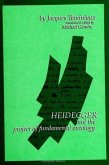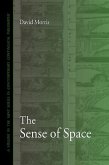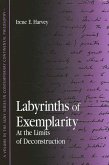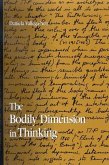Appearing for the first time in English, this book by Jacques Taminiaux is a systematic investigation into Hannah Arendt's intellectual relationship to Heidegger, the implications of which are indispensable to understanding the philosophical choices of our times. Beginning his investigation with Heidegger's 1924-25 lecture course on Plato's Sophist, wherein Heidegger originally formulated his fundamental ontology, Taminiaux focuses on the student Hannah Arendt's first encountering "a set of problems of immediate importance and urgency." The author shows that Arendt's The Human Condition may be read both in its structure and in its themes--action, the world, the principle of individuation, the public realm--as a veritable retort and reply to Heidegger. Arendt is likened to the Maid from Thrace, a reference to Plato's Theaetetus wherein the Maid laughs at the philosopher who, while walking with his gaze to the stars above, falls into a well. But Arendt's critique of Heidegger cuts much deeper than this. While the political import of Arendt's work has long been recognized, Taminiaux's book systematically develops the philosophical framework which helps give shape to those political views. Thus one of the functions of The Life of the Mind, Taminiaux argues, is to reject the rigid division between the speculative thinker and the "common man", or the vita contemplativa and the vita activa. Contrary to other recent studies on these two figures, Taminiaux claims "that Arendt's two major works...reveal at every page not at all a dependency upon Heidegger...but rather a constant, and increasingly ironic, debate with him." In the process, Heidegger's philosophical work is interpreted in terms of its own political significance.
Hinweis: Dieser Artikel kann nur an eine deutsche Lieferadresse ausgeliefert werden.
Hinweis: Dieser Artikel kann nur an eine deutsche Lieferadresse ausgeliefert werden.








